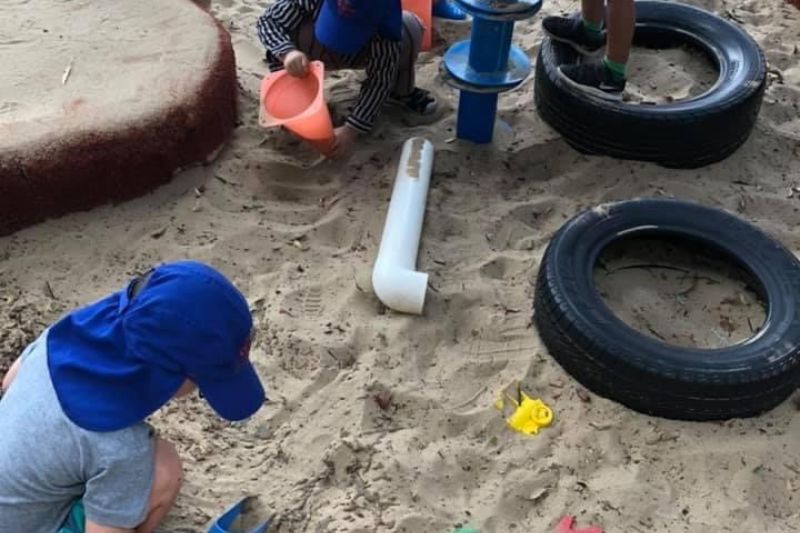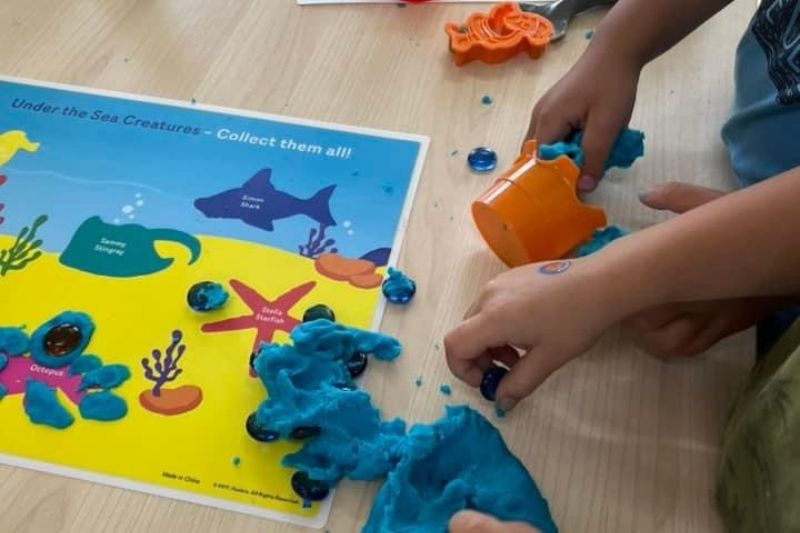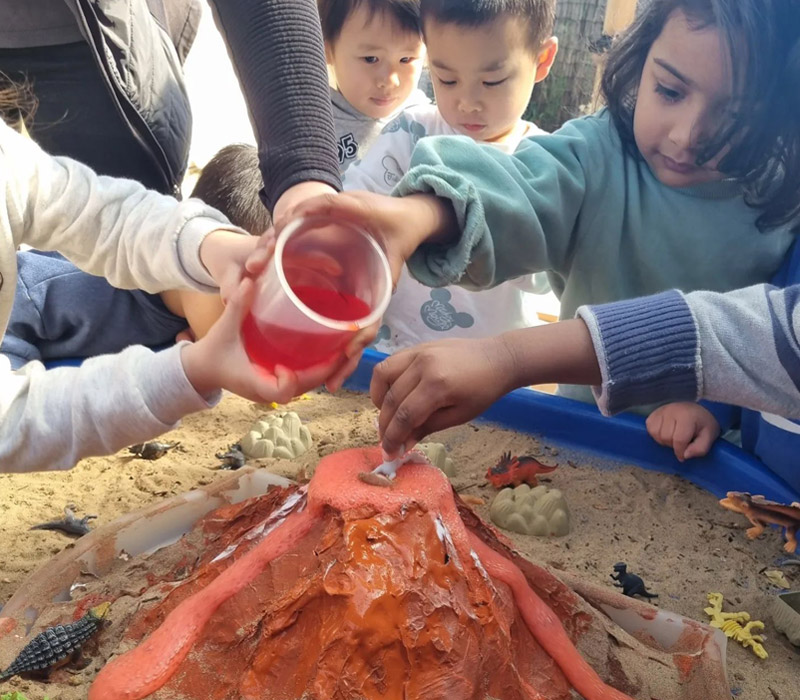The Early Years are the most extraordinary period of development and growth in a child’s lifetime as the foundations of all learning are laid during these years.
Early childhood education is pivotal in supporting a child’s learning and development before transitioning to school. In early childhood education and care settings, children gain social, physical, behavioural, and cognitive understanding and development. This is where the overlap occurs in early childhood education vs child development.
Research reveals that children who are exposed to early childhood education develop stronger foundations and are then better prepared for school, go on to become more productive workers, and are healthier adults.
Early Childhood Education vs. Child Development

Child development encompasses the development of children and adolescents through observation of relationships between family members, such as between parents and children. Child development roles can include conducting activities, observing children, and identifying and solving problems.
Early childhood education provides young children with age-based environments to maximise growth by engaging children in learning and development activities.
Both early childhood education and child development experts share the same goals of understanding how children grow and develop. Both professionals want children to receive quality education, be healthy and receive the necessary tools to succeed in life.
Choosing the Right Type of Care for Your Child
When it comes to selecting the best arrangement for your family, there are various factors that families should take into consideration. Determining the type of childcare service you are looking for depends on your family dynamics.
We know that children respond well to consistency and routine, so it’s helpful to ensure that your child will be seeing the same educators daily.
It is important that the curriculum is personalised to meet the changing needs of your child. At Shine, our approach to learning is holistic encompassing social, emotional, physical, and cognitive development where all children enjoy a range of experiences and opportunities.
Partnerships between educators and families is important to promote a sense of belonging so children feel safe and secure. We believe our commitment to proactive and effective relationships with the children and their family members shapes our community.
What Is the Difference Between Daycare and Preschool?

In Australia, families can choose between daycare and preschool when it comes to options for early years childcare services. Both service types are structured, overseen by qualified staff, reliable and provide opportunities for children to socialise with their peers.
Finding the right care option for your child can be incredibly overwhelming, especially when there are several different services and settings on offer.
Preschool
Preschools are an early education environment geared for children aged 3 to 6 years who are beyond the toddler years but aren’t old enough to start school. Children usually attend two or three days a week, depending on their age. Families generally provide their own food for their child on their attending days.
Preschools are commonly local based and may be operated by community organisations, local government, or churches. Community-based preschools are often managed by volunteers and families of enrolled children, further emphasising a focus on community and establishing local network groups.
Long Day Care Centre
Long day care centres are generally open 50 weeks of the year and operate 10–12-hour days during the weekday, making them a more suitable option for working families. All meals and nappies are included, with sleeping facilities provided for all ages groups.
Long day care centres offer an early learning program in all rooms, and a preschool program for children aged 3 to 6. The learning programs provided are aligned with the Early Years Learning Framework (EYLF) and provided by a qualified teacher. At Shine, families can access information about their child’s program and documentation via a comprehensive programming, documentation, and communication platform.
Long day care services generally cater to children from birth to 12 providing families a greater opportunity to send siblings to the same centre, offering a convenient solution with a single drop off and pick up. Adding to family convenience, nutritious meals, snacks and beverages are included.
Most long day care centres are approved child care services, which means families can claim Child Care Subsidies to support with fees.
Attendance and Hours:
Daycares and preschools operate on different schedules, generally, preschools tend to have shorter operating hours and close during school holidays. Daycares offer more flexibility in scheduling making them a preferable option for working parents and carers.
At Shine, we operate 50 weeks in the year, opening 7am to 6pm on weekdays. Daycare services allow for greater personalisation of a child’s schedule so families can select which days their child will attend and whether they will be present year-round or only during select times of the year.
Structure of Daily Activities:
Although differing structural settings, both service types offer educational opportunities. Both preschools and daycares encourage children to explore and extend on their social, cognitive, emotion, and physical development through a variety of age-based activities.
Licensing and Accreditation Requirements:
Preschool and daycares must both comply with relevant licensing and accreditation requirements that oversees all aspects including curriculum and staffing. Albeit the delivery method of educational learning may look different amongst both settings, children are receiving similar benefits with both options. Both preschools and daycares offer play-based learning that is conducive to young learners.
Age and Toilet Training:
Both preschools and daycare centres separate children into age-appropriate groups for playtime and learning activities. Preschools accept children between the ages of 3 and 5 and generally require them to be toilet trained prior to commencing care. Daycare centres do not have the same requirements and will enrol children still in nappies.
Learning Outcomes:
Traditionally, parents focussing on school preparation chose preschools for their structured lesson plans and activities. This is no longer necessary, as daycare centres provide a similar curriculum and achieve the same learning outcomes. Shine’s curriculum follows the EYLF and is engaging, age-appropriate, and aimed at fostering creativity whilst building a child’s developmental, communication, and motor skills. School Readiness and Transition to school programs are provided at Shine Early Learning centres.
Other childcare option around Australia can also include the following service types.
Family Day Care

Family day care is primarily for children who have not yet commenced school however care can be provided for school aged children up to 12 years old.
Care options are flexible and can be tailored to suit family’s needs such as providing care outside normal working and business hours and if required, overnight options for shift workers.
Family day cares can be privately operated or a network of experienced carers and educators who provide care and developmental activities in their own homes for other people’s children.
Kindergarten / Prep
Kindergarten / Prep is a facility catering for children in the years before a child commences school. Children are usually aged between 3 and 5 years old and engage in a preschool program taught by a qualified early childhood teacher. This is provided in a range of settings including purpose-built facilities, in a community hall, at a school, or as part of a long day care centre or a mobile or visiting service.
Kindergarten / Prep hours generally coincide with school hours 9:00am to 3:00pm weekdays and operate on school terms.
Before / After School Care or Outside School Hours Care

Supervised care and recreation for school-age children available:
- Before and after school
- On pupil-free days
- During school holidays (vacation care)
OSHC is usually associated with schools and caters to occasional care for primary school children. Most OSHC services are operated by community and private organisations. Typical hours for OSHC services are:
- Before school 7.00 – 9.00 am
- After school 3.00 – 6.00 pm
- Vacation 7.00 am – 6.00 pm each week day
In Home Care
In home care is a flexible form of childcare where quality early childhood education and care is provided in the family home by a qualified In-Home Care educator.
This type of childcare service is a government subsidised childcare option for families that are unable to access mainstream childcare options for varying reasons. These may include because their work nonstandard or variable hours, they have complex and challenging family’s needs or because they are geographically isolated.


